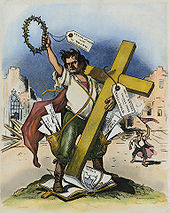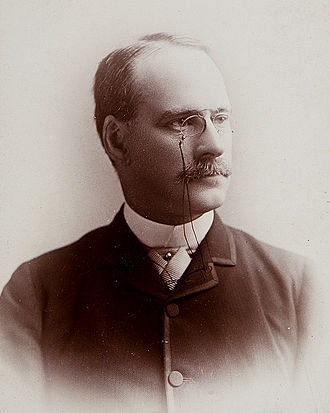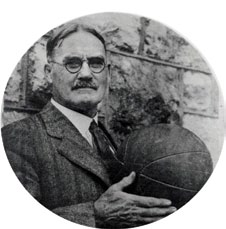See my post at
https://groups.google.com/d/msg/soc.history.what-if/q0N9PcXBl4s/aePaSHpmPzUJ
***
We had a somewhat extended discussion of a Bryan administration at
http://groups.google.com/group/soc.history.what-if/browse_thread/thread/5a4a22cfafdeff41
Here I'll just make a few points:
(1) Assuming that Bryan does succeed in instituting free silver (whether a
narrowly elected Bryan could get it through Congress is an open question)
the best discussion of the likely economic effects is by Noel Maurer (now
of Harvard Business School--one of the few economists who has ever
contributed to this newsgroup) at
http://groups.google.com/group/soc.history.what-if/msg/19c1be1c62862260
He agrees with me that Bryan would be introducing free silver at the wrong
time (as I put it, "There was a case for it throughout the long, generally
deflationary period between the 'Crime of 1873' and 1896. But now with
the cyanide process and the discovery of gold in South Africa, the
Klondike, etc., gold production was increasing, and free silver would only
add to inflation.") but thinks it would be only mildly inflationary, and
probably would not harm the economy (though he acknowledges that there is
some danger of loss of investor confidence). So I doubt *very* much that
Bryan is going to extend the depression "all the way to 1903." And that
puts the idea that he will be a one-term president in some doubt--he may
be able to claim some credit for the recovery: even though *we* know it
would have happened without him, all the voters of 1900 would know was
that there was a depression under the conservative gold-standard Cleveland
and there was a recovery under the "radical" Bryan.
(2) The notion that Bryan would have objected to the Spanish-American War
as "imperialism" is a confusion between the war itself and one of its OTL
results--the acquisition of the Philippines. Many people (in the
Bryanite silver camp and elsewhere) favored the former--regarding it as a
just war for the liberation of Cuba--and opposed the latter. Bryan would
have favored an independent Philippine republic--though of course he could
support US naval bases there (and in Cuba). As Bryan's career as
Secretary of State after 1913 showed, his opposition to a formal colonial
empire for the US didn't necessarily mean that he opposed all US
intervention in places like the Caribbean.
(3) Not enough attention is usually given to Bryan's likely domestic
policy in areas other than free silver. As I noted at
http://groups.google.com/group/soc.history.what-if/msg/b989f95239596484
"[W]hile it is certainly true that Bryan and the Democrats concentrated on
free silver in the 1896 campaign, one should not forget that the
Democratic platform--while of course not as radical as the Populists'--was
by no means restricted to free silver. It called for an income tax and for
'the enlargement of the powers of the Inter-State Commerce Commission and
such restrictions and guarantees in the control of railroads as will
protect the people from robbery and oppression,' and denounced high
tariffs, 'government by injunction,' and "[t]he absorption of wealth by
the few, the consolidation of our leading railroad systems and the
formation of trusts and pools.'
http://projects.vassar.edu/1896/chicagoplatform.html
"Some comments on the Chicago platform from conservatives:
"'No wild-eyed and rattle-brained horde of the red flag ever proclaimed
such a specific defiance of law, precedent, order, and government' was the
comment of the *New York Mail*...'Considering the platform,' declared C.
Ellery Anderson of New York, 'it may be as well that a revolutionist like
Bryan stands upon it. We want them with red flags so there will be
provocation for shooting them down.' (*Literary Digest,* Vol. XIII, July
18, 1896, p. 357.)" Philip Foner, *History of the Labor Movement in the
United States, Volume II* (1955), p. 336. Foner, a Communist, gives the
Chicago Platform the Red Seal of Approval, proclaiming it 'progressive.'
(p. 333).
"It's important to remember this because it goes against the widespread
belief that the Populist support for Bryan was put over by 'conservative'
Populists who believed in free silver as *the* panacea. And it may help
to explain the enthusiastic support for Bryan by what some might consider
an unlikely source--Eugene V. Debs (although, interestingly, even Debs, in
his campaign tour for Bryan, put a heavy emphasis on free silver)."
Of course, once again, the question is to what extent Bryan could get
these "radical" measures through Congress. Perhaps more railroad
regulation and some procedural safeguards in the use of labor injunctions
in federal courts would pass. There might be some strengthening of the
Sherman Anti-Trust Act. The Democratic platform pretty much acknowledged
that the tariff couldn't be lowered as long as the Supreme Court decision
invalidating the income tax stood, but the death of Stephen J. Field
http://en.wikipedia.org/wiki/Stephen_Johnson_Field would eventually give
Bryan a chance to make the Court a bit less conservative. In any event,
presumably the *increases* in the tariff in OTL with the Dingley Act would
not have been enacted.
It is true, though, that while both Bryan and the Democrats were in
principle in favor of many reforms other than free silver, they
concentrated heavily on that last issue in 1896, and Bryan might have
spent a disproportionate amount of his energy as President to getting it
enacted, to the detriment of other reforms.
(4) Bryan is notorious for sharing the white South's attitudes toward
African Americans, though as I note at
http://groups.google.com/group/soc.history.what-if/msg/4a22984a42f06a6c he
wasn't as racist in 1896 as he would be later. But in any event it is
hard to see how African Americans (other than some federal patronage
employees) would fare much worse under him than under McKinley. The
southern states would have continued with segregation, disfranchisement,
lynchings, etc., no matter who was in the White House.














